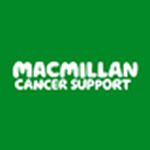Friday 27 June 2025
Temi Omooba
Chemotherapy, or chemo, is a drug treatment used to destroy or control cancer cells.
There are many different chemotherapy drugs used for different types of cancer.
This page will help you understand how chemotherapy is used for cancer.
Chemotherapy drugs may be used on their own or in combination with other chemo drugs or cancer treatments.
They can be used to:
Chemotherapy drugs work to destroy cancer cells in different ways. They may:
Chemotherapy drugs will affect normal cells as well, but the effects are temporary because normal cells can repair faster than cancer cells.
How regularly you have chemotherapy will depend on what drug, or combination of drugs you are having.
It's usually given a set number of days or weeks apart. This is called a cycle.
Each cycle starts when the normal cells have repaired enough to cope with another dose.
Before you start treatment, you will be told how many cycles to expect.
Chemotherapy can be given in different ways depending on the type of drug or cancer type.
Usually drugs are given:
Before each one, you'll have a blood test to check your normal cells have repaired enough.
Where you have chemotherapy will depend on your situation and the drugs you are having. You might need to go to hospital as a day patient, stay in hospital or have it at home.
Different chemotherapy drugs have different side effects but there are some that are more common.
The list can seem overwhelming but it's very unlikely that you'll get all of them.
Common side effects are:
Your doctor or specialist nurse will go through the side effects of each of the drugs you are taking and let you know which ones you are likely to get.
There are lots of ways to manage side effects so it's important to let your healthcare team know if you have them so they can help.
When you're having chemotherapy you are more likely to develop infections that get serious quickly.
Your healthcare team will tell you which side effects need urgent treatment, for example a high temperature or being sick.
You will be given a 24-hour contact number and it's important you use it to report problems so you can be treated quickly.
You might have questions about your treatment and how you'll manage before, during or after.
Our Cancer Support Specialists are here to listen to your concerns and help you find the information and help that's right for you:
Last review: Oct 2021 | Next review: Oct 2022
Find out more about chemotherapy and what it's like to have it.

From American Cancer Society
Last reviewed: 21 October 2021
Find out more about how you have chemo, possible side effects and coping with everyday life and look up individual chemo drugs and combinations.

From Cancer Research UK (CRUK)
Last reviewed: 21 October 2021
Find out more about what having chemotherapy involves.

From Cancer.Net
Last reviewed: 21 October 2021
Find out more about chemotherapy and how it might affect you.

From Macmillan Cancer Support
Last reviewed: 21 October 2021
To find your nearest Maggie's centre, enter your postcode or town below.
Stay up to date with our news and fundraising by signing up for our newsletter.
Sign up